- Home
- Sharon Shinn
Jenna Starborn
Jenna Starborn Read online
Table of Contents
Epigraph
Title Page
Copyright Page
Dedication
Chapter 1
Chapter 2
Chapter 3
Chapter 4
Chapter 5
Chapter 6
Chapter 7
Chapter 8
Chapter 9
Chapter 10
Chapter 11
Chapter 12
Chapter 13
Chapter 14
Chapter 15
Chapter 16
Chapter 17
Chapter 18
Chapter 19
Chapter 20
Epilogue
Also by Sharon Shinn ...
“The most promising and original writer of fantasy to come along since Robin McKinley.”
—Peter S. Beagle, author of The Last Unicorn
Praise for Sharon Shinn and the Samaria trilogy . . .
Archangel
“Shinn is a good storyteller.... Archangel takes advantage of the familiar—goodness, the Bible, Paradise Lost—through building its own lively quest narrative with these sure-fire building blocks so that one feels at home in the narrative very quickly; it also has a clean, often wryly funny prose.”
—The New York Review of Science Fiction
“Taut, inventive, often mesmerizing, with a splendid pair of predestined lovers.”
—Kirkus Reviews
“Displaying sure command of characterization and vividly imagined settings, Shinn absorbs us in the story ... an interesting SF-fantasy blend that should please fans of both genres.”
—Booklist
“Excellent world-building, charming characterizations. A garden of earthly delights.”
—Locus
Jovah’s Angel
“Shinn displays a real flair for [music and romance], giving music a compelling power and complexity, while the developing attraction between Archangel Alleluia and a gifted but eccentric mortal should charm the most dedicated anti-sentimentalist and curmudgeon. . . . [A] book of true grace, wit, and insight into humanity, past and future.”
—Locus
“Some may raise eyebrows at Sharon Shinn’s less-than-saintly angels, but they make for far more interesting characters than the winged paragons of legend. Many will no doubt find her end results quite heavenly.”
—Starlog
“Romantic ... delightful. I’m eagerly awaiting her next novel.”
—The Magazine of Fantasy & Science Fiction
The Alleluia Files
“A warm and triumphant close to Shinn’s Samaria trilogy.”
—Publishers Weekly
“A tale that makes for exciting, suspenseful, romantic, frightening, and even amusing reading.”
—St. Louis Post-Dispatch
Also by Sharon Shinn ...
Wrapt in Crystal
“Taut, realistic police work, an involving love story, and a fetching backdrop ... well up to Shinn’s previous high standards.”
—Kirkus Reviews
“Shinn deftly combines mystery, high-tech SF, and romance with a layering of fantasy in a fresh and innovative tale full of surprising turns of plot.”
—Library Journal
“Offers a convincing view of human impulses toward both worldly and unworldly passions with a touch of the otherworldly to bring it into the realm of science fiction.”
—Locus
“It doesn’t get much better than Wrapt in Crystal-interesting characters, an intriguing mystery, a believable love story, and a satisfying ending.”
—Starlog
The Shape-Changer’s Wife
Selected by Locus as the Best First Fantasy Novel of the Year
“Ms. Shinn takes a traditional romance and wraps it in a fantasy ... rousing.”
—The Magazine of Fantasy & Science Fiction
“The spellbinding Ms. Shinn writes with elegant imagination and a steely grace, bringing a remarkable freshness that will command a wide audience.”
—Romantic Times
Heart of Gold
“An elegant and suspenseful tale.”
—Library journal
“A telling story of a racially divided society, and a pretty good love story, too ... another top-notch outing.”
—Kirkus Reviews
“Will appeal to readers who enjoy unconventional romances and strong women protagonists.”
—Science Fiction Weekly
“Smoothly written. Shinn has a talent for creating vivid, sympathetic characters. Nuanced and intelligent. A thoroughly entertaining reading experience.”
—SF Site
“The love story of this book is balanced by deft examination of prejudice, intolerance, and inequality. This book is difficult to put down and will appeal to fantasy readers as well as fans of an intriguing love story.”
—VOYA
“A tightly woven SF story with touches of romance, intrigue, and fantasy.”
—KLIATT
“Clever plotting, subtle characterization, and just plain good writing will keep readers fascinated from first page to last. Shinn is one of the most intriguing voices in speculative fiction today.”
—Romantic Times
“Extraordinary. Science fiction of the highest caliber.”
—Midwest Book Review
Summers at Castle Auburn
“Intensely emotional.... An exquisitely rendered coming-of-age tale in which Ms. Shinn shines as a powerful storyteller with a depth of feeling that touches the soul.”
—Romantic Times
“The latest enchantment from Crawford Award-winner Shinn combines romantic spice, a dash of faerie, and a pinch of intrigue to create a hybrid soufflé that is delicious.”
—Publishers Weekly
This is a work of fiction. Names, characters, places, and incidents either are the product of the author’s imagination or are used fictitiously, and any resemblance to actual persons, living or dead, business establishments, events, or locales is entirely coincidental.
JENNA STARBORN
An Ace Book / published by arrangement with the author
Ace trade paperback edition / April 2002
All rights reserved.
Copyright © 2002 by Sharon Shinn.
This book, or parts thereof, may not be reproduced
in any form without permission.
For information address: The Berkley Publishing Group,
a division of Penguin Putnam Inc.,
375 Hudson Street, New York, New York 10014.
Visit our website at
www.penguinputnam.com
Check out the ACE Science Fiction & Fantasy newsletter!
Library of Congress Cataloging-in-Publication Data
Shinn, Sharon.
Jenna Starborn / Sharon Shinn.
p. cm.
ISBN : 978-1-101-54964-3
1. Young women—Fiction. I. Title.
PS3569.H499 J46 2002
813’.54—dc21
2001056051
ACE®
Ace Books are published by The Berkley Publishing Group,
a division of Penguin Putnam Inc., 375 Hudson Street,
New York, New York 10014.
Ace and the “A” design are trademarks
belonging to Penguin Putnam Inc.
http://us.penguingroup.com
For Jean,
with whom I had the conversation about tigers
Chapter 1
You would think that if someone commissioned your conception, paid for your gestation, and claimed you immediately after your harvesting, she would love you with her whole heart; but you would be wrong. Aunt Rentley had had me created to fill a void in her existence, which was unexpe
ctedly filled by others. I was quickly made not only redundant but unwelcome, and yet there I was, in her house, under her feet, a constant reminder of how much she had paid to purchase something she no longer wanted.
This was never clearer than on Jerret’s ninth birthday, an event celebrated with as much flourish as my aunt could muster. The cooks spent a week baking special dishes for the delectation of the hundred guests. The housemaids cleaned every room in the fifty-room mansion down to the curtains, walls, and floorboards; the gardeners replanted the entire front lawn with a hybrid rose imported from Karian and doomed to die within a month in our unfavorable climate. The walls of the mansion were themselves recharged so they hummed with energy and delighted you with the faintest static shock if you ran your hand too rapidly over the simulated brick. Cold and sunless it might be outside, but inside existed an environment of warmth, light, cheer, and goodwill.
For those welcome in the house, of course.
During all this frenzied activity, I kept to myself as much as possible, for there was nowhere I was particularly wanted. As Aunt Rentley’s ward, I was not exactly a servant, so there was no work for me to perform in the kitchen or laundry room; and yet neither Aunt Rentley nor Jerret wanted me to join in their family councils as they planned their guest list and considered activities for the celebration. I was used to being ignored by my aunt and her son, but during these planning stages, I was positively reviled. My briefest appearance caused her to shriek with impatience and order me from the room, stupid girl, did I not see how busy she was with important preparations? Jerret, a born bully, would leap to his feet and point a chubby finger toward the door, bawling at me to get out get out get out, he did not want me ruining his party with my sallow face and witch’s eyes.
He stopped at verbal abuse if his mother or one of the servants could hear, but if I happened to cross his path when no one else was near, he would fall upon me in physical rage. I was a year older than he was, but he was by far bigger, and more than once he cornered me against some doorway or banister and threw punches into my stomach and raised bruises on my shins. This afternoon, he had wrestled me to the ground and twisted his hand in the collar of my shirt so that I could scarcely breathe. I truly thought I would lose consciousness or suffocate, but then I heard footsteps down the hall.
It was Betista, coming around the corner with her arms piled high with fresh linens. “Master Jerret!” she exclaimed, and suddenly I was free, supine on the cold floor, too faint to immediately raise my head. Through a strange dullness in my ears I heard Jerret scramble to his feet and make his sullen defense.
“It was her fault. She hit me,” he growled.
Betista ignored him, dropping to her knees to investigate my condition. I heard the sounds of Jerret’s footsteps fleeing down the hall.
“Jenna!” Betista exclaimed. “Jenna, dear girl, are you badly hurt? Do I need to send you to the PhysiChamber?”
I had recovered enough now to push myself to a sitting position. She was still staring down at me, clasping her hands under her full chin, her gray eyes sick with worry. I attempted a smile. “I’ll be fine. I feel sick to my stomach, but that will pass.”
“Let me take you to the kitchen,” she said briskly, hauling her bulk to her feet and reaching out a hand to help me up. “I’ll make you some tea.”
But the thought of swallowing anything hurt my bruised throat. “No, thank you very much,” I said formally. Ignoring her outstretched hand, I pushed myself to my feet. “I’ll just go to my room now.”
Betista looked undecided. She was the housekeeper, a woman of some influence in the household, and she was the closest to an ally I had ever had. Yet, as she would never overtly defy my aunt Rentley, and she could not protect me from Jerret, there was very little she could do to materially improve my lot. Except not hate me.
“I think you should come sit quietly by me for a while,” she said. “I should keep an eye on you. You look pale and a little strange.”
“I always look strange,” I said, with an attempt at humor.
Betista bristled. “Now, that’s not true! You’re a lovely girl—a little thin, maybe, and dark, though some consider a dark complexion to be fashionable—you shouldn’t listen to what your aunt says, you know she’s partial to Master Jerret—”
I let it go; I was not about to discuss my physical merits with the housekeeper here in the hallway when all I wanted to do was go to my room and lie down. “In any case, I’ll be fine,” I said.
Betista gathered up her linens, which she had dropped helter-skelter on the floor when she came to my aid. I sensed a certain indecision in her manner. “Now, what happened this afternoon,” she said slowly, uncertainly. “You’re not going to tell on Master Jerret—”
“No,” I said tiredly.
“Because she can’t help it, he’s her son and she loves him. When you tell tales on him, she doesn’t believe you.”
“I know.”
“So it does no good to be reporting stories to your aunt,” she finished up in a rush.
I had made my way somewhat shakily to the head of the stairwell; it was the servants’ staircase, but it would take me by an indirect route to my own chamber. Over my shoulder, I said curtly, “She’s not my aunt,” and I began the long climb up to my room.
In point of fact, she was not my aunt; she had intended to be my mother. That was when she was childless, of course, before the doctors had made the miracle of Jerret possible. So she had commissioned me, and I had been grown in the generation tanks of Baldus, and she had come every day to watch my fetus shape itself and uncurl. She had laid her hand on the glass tanks, trying through the impermeable substance to touch my clenched fingers, and she had counted the minutes and the days until I was ready for harvesting.
When did it go wrong for her? When did I lose my hold on her heart? Was there something repulsive in my small, squalling body—was there a timbre in my midnight wail that sent tremors through her sensitive bones? I like to think neither of these things are true; I like to think that any child she had brought home from the gen tanks would have, eventually, seemed to her something foreign and hateful. She is not a happy woman around synthetics; she cannot stand the sight of the cyborgs that labor in the mines, indifferent to the planet’s cold and its poisons alike. I like to think that it was the method of my creation, and not the soul inside my body, that made her despise me.
Or perhaps it had nothing to do with me or my conception: Perhaps she was so limited in her love that she had none to spare for me once she could produce her own son. It had been an accepted thing, since some early childhood trauma, that she would be unable to conceive; and among her contemporaries, to bear a child naturally was considered the highest accomplishment a woman could attain. But something happened only two months after she brought me home. The doctors perfected the artificial womb, and her fortune was easily large enough to purchase one, and suddenly she was carrying within her own body that most precious commodity, another life; and there was no room for me in her thoughts, in her house, in her heart.
Naturally, this left me in a most precarious position. Since she had paid for me, she was responsible for me; I was not easily disposed of. And yet, since she had never formally adopted me, I was not legally her daughter. In fact, I had no legal status at all. I simply was.
The technical term for my condition was half-citizen, and there were many like me, on Baldus and throughout the interstellar system. We were created from many circumstances. Some, like me, were rejected gen-tank babies. Some were legitimately conceived sons and daughters whose parents had decided, for some reason or another, not to acknowledge them. Some were orphans, with no family to care for them and no institution willing to pay for their upkeep and training in a profession that would allow them to earn enough to buy their own citizenship.
Citizenship existed at five grades, from the fifth and lowest rung to the first and highest. Fifth- and fourth-level citizens were accorded such status only on their home
worlds; third- and second-class citizens were accepted in more regional districts of federated planets; and first-grade citizens were honored everywhere throughout the Allegiant Planetary Council Worlds.
Citizenship grades had been instituted in the first greedy, brutal days of interstellar exploration. The fractured governments of the planet Earth being unable to sustain any cohesive space-going program, the real advances in technology and colonization had been, at the beginning, financed by extraordinarily wealthy private entrepreneurs who were not willing to share their prizes with the masses back home. As one of the great early merchant princes put it, “Imperialism is incompatible with democracy.” Those first families in space risked much, gained everything, and passed on to future generations wealth so fabulous it could hardly be reckoned—and the same disinclination to share their fortunes. As the Allegiance was formed between newly settled planets, social systems grew more codified, and the chance of breaking from a preordained caste grew more and more remote.
There were only three ways to become a citizen of any rank: Be born (or adopted) to the status, marry into it, or buy it. I had been unlucky on the first count. Even at the age of ten, I could see that the other options did not look promising for me, either. I knew I was contemplating a lifetime of half-citizenship.

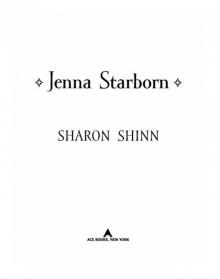 Jenna Starborn
Jenna Starborn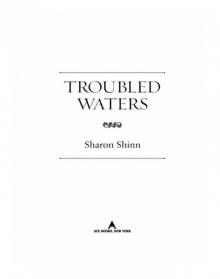 Troubled Waters
Troubled Waters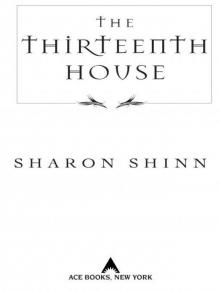 The Thirteenth House
The Thirteenth House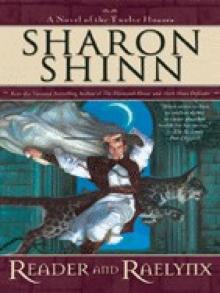 Reader and Raelynx
Reader and Raelynx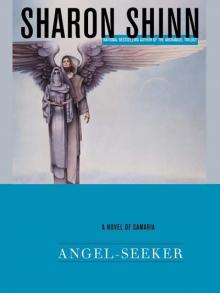 Angel-Seeker
Angel-Seeker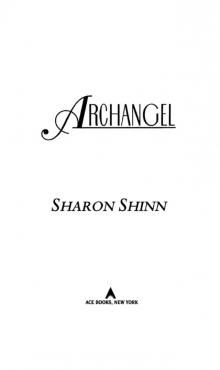 Archangel
Archangel Jeweled Fire
Jeweled Fire Nocturne
Nocturne The Shape-Changer's Wife
The Shape-Changer's Wife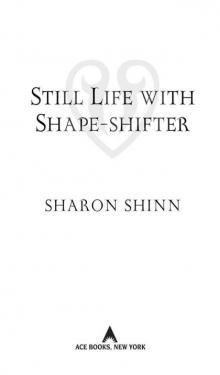 Still Life With Shape-Shifter
Still Life With Shape-Shifter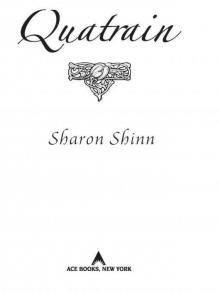 Quatrain
Quatrain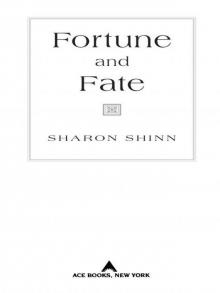 Fortune and Fate
Fortune and Fate Angelica
Angelica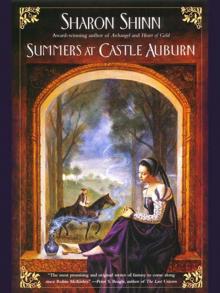 Summers at Castle Auburn
Summers at Castle Auburn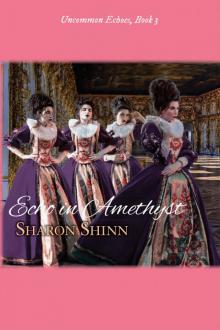 Echo in Amethyst
Echo in Amethyst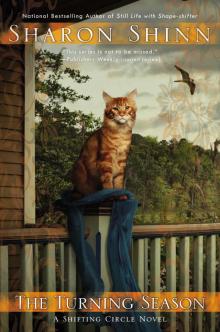 The Turning Season
The Turning Season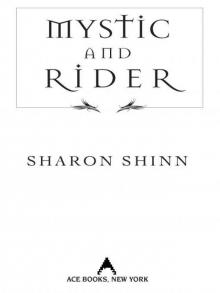 Mystic and Rider
Mystic and Rider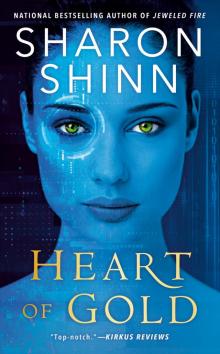 Heart of Gold
Heart of Gold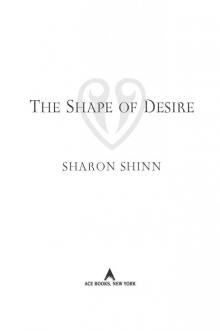 The Shape of Desire
The Shape of Desire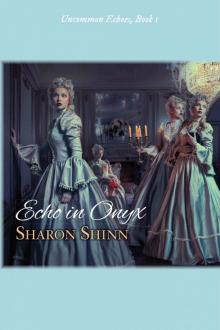 Echo in Onyx
Echo in Onyx Royal Airs
Royal Airs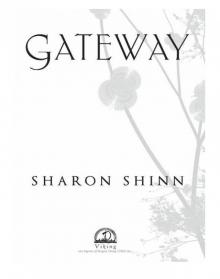 Gateway
Gateway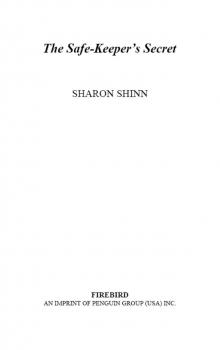 The Safe-Keeper's Secret
The Safe-Keeper's Secret Wrapt in Crystal
Wrapt in Crystal Unquiet Land
Unquiet Land Jovah's Angel
Jovah's Angel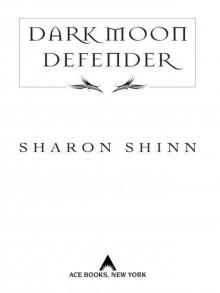 Dark Moon Defender (Twelve Houses)
Dark Moon Defender (Twelve Houses)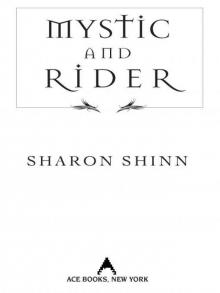 Mystic and Rider (Twelve Houses)
Mystic and Rider (Twelve Houses)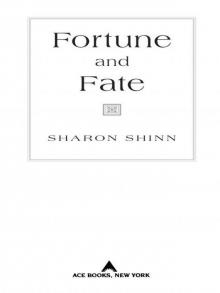 Fortune and Fate (Twelve Houses)
Fortune and Fate (Twelve Houses)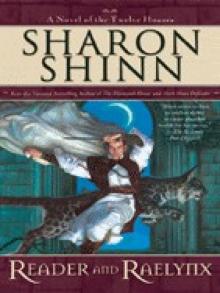 Reader and Raelynx (Twelve Houses)
Reader and Raelynx (Twelve Houses)